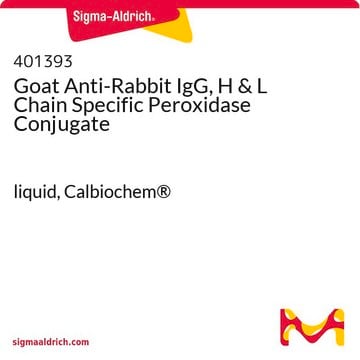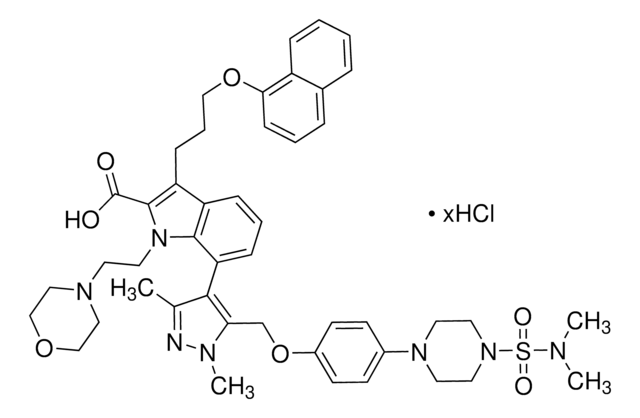551476
Q-VD-OPh, Non-O-methylated
≥90% (HPLC), liquid, Caspase inhibitor, Calbiochem®
Synonym(s):
InSolution Q-VD-OPh, Non-O-methylated, N-(2-Quinolyl)valyl-aspartyl-(2,6-difluorophenoxy)methyl Ketone
About This Item
Recommended Products
product name
Q-VD-OPh, Non-O-methylated, InSolution, ≥90%, irreversible broad-spectrum inhibitor of caspases
Quality Level
Assay
≥90% (HPLC)
form
liquid
manufacturer/tradename
Calbiochem®
storage condition
OK to freeze
desiccated (hygroscopic)
protect from light
shipped in
wet ice
storage temp.
−20°C
General description
Biochem/physiol Actions
caspase-1
Packaging
Warning
Sequence
Physical form
Reconstitution
Other Notes
Caserta, T.M., et al. 2003. Apoptosis8, 345.
Rebbaa, A., et al. 2003. Oncogene22, 2805.
Legal Information
Storage Class Code
10 - Combustible liquids
WGK
WGK 1
Flash Point(F)
188.6 °F - closed cup - (Dimethylsulfoxide)
Flash Point(C)
87 °C - closed cup - (Dimethylsulfoxide)
Regulatory Listings
Regulatory Listings are mainly provided for chemical products. Only limited information can be provided here for non-chemical products. No entry means none of the components are listed. It is the user’s obligation to ensure the safe and legal use of the product.
FSL
Group 4: Flammable liquids
Type 3 petroleums
Hazardous rank III
Water insoluble liquid
JAN Code
551476-MG:
551476-50MG:
551476-5MG:
551476-0MG:
551476-1MG:
Certificates of Analysis (COA)
Search for Certificates of Analysis (COA) by entering the products Lot/Batch Number. Lot and Batch Numbers can be found on a product’s label following the words ‘Lot’ or ‘Batch’.
Already Own This Product?
Find documentation for the products that you have recently purchased in the Document Library.
Our team of scientists has experience in all areas of research including Life Science, Material Science, Chemical Synthesis, Chromatography, Analytical and many others.
Contact Technical Service








